The specter of an evil-doing Vladimir Putin has loomed over and undermined US thinking about Russia for at least a decade.
Henry Kissinger deserves credit for having warned,
perhaps alone among prominent American political figures, against this
badly distorted image of Russia’s leader since 2000: “The demonization
of Vladimir Putin is not a policy. It is an alibi for not having one.”
But Kissinger was also wrong. Washington has made many policies
strongly influenced by the demonizing of Putin—a personal vilification
far exceeding any ever applied to Soviet Russia’s latter-day Communist
leaders. Those policies spread from growing complaints in the early
2000s to US-Russian proxy wars in Georgia, Ukraine, Syria, and
eventually even at home, in Russiagate allegations. Indeed,
policy-makers adopted an
earlier formulation by the late Senator John McCain
as an integral part of a new and more dangerous Cold War: “Putin [is]
an unreconstructed Russian imperialist and K.G.B. apparatchik…. His
world is a brutish, cynical place…. We must prevent the darkness of Mr.
Putin’s world from befalling more of humanity.”
Mainstream media outlets have played a major prosecutorial role in the demonization. Far from atypically,
The Washington Post’s editorial-page editor wrote,
“Putin likes to make the bodies bounce…. The rule-by-fear is Soviet,
but this time there is no ideology—only a noxious mixture of personal
aggrandizement, xenophobia, homophobia and primitive anti-Americanism.”
Esteemed publications and writers now routinely degrade themselves by
competing to denigrate “the flabbily muscled form” of the
“small gray ghoul named Vladimir Putin.”
There are hundreds of such examples, if not more, over many years.
Vilifying Russia’s leader has become a canon in the orthodox US
narrative of the new Cold War.
As with all institutions, the demonization of Putin has its own
history. When he first appeared on the world scene as Boris Yeltsin’s
anointed successor, in 1999–2000, Putin was welcomed by leading
representatives of the US political-media establishment.
The New York Times’ chief Moscow correspondent
and other verifiers reported that Russia’s new leader had an “emotional
commitment to building a strong democracy.” Two years later, President
George W. Bush lauded his summit with Putin and “the beginning of a very constructive relationship.”
Related: Syria Conflict: Results Of Meeting Between Rouhani, Erdogan, Putin In Teheran
But the Putin-friendly narrative soon gave away to unrelenting Putin-bashing. In 2004,
Times columnist Nicholas Kristof inadvertently explained why, at least partially.
Kristof complained bitterly of having been “suckered by Mr. Putin. He is not a sober version of Boris Yeltsin.” By 2006, a
Wall Street Journal editor, expressing the establishment’s revised opinion,
declared it “time we start thinking of Vladimir Putin’s Russia as an enemy of the United States.” The rest, as they say, is history.
Who has Putin really been during his many years in power? We may
have to leave this large, complex question to future historians, when
materials for full biographical study—memoirs, archive documents, and
others—are available. Even so, it may surprise readers to know that
Russia’s own historians, policy intellectuals, and journalists already
argue publicly and differ considerably as to the “pluses and minuses” of
Putin’s leadership. (My own evaluation is somewhere in the middle.)
In America and elsewhere in the West, however, only purported
“minuses” reckon in the extreme vilifying, or anti-cult, of Putin. Many
are substantially uninformed, based on highly selective or unverified
sources, and motivated by political grievances, including those of
several Yeltsin-era oligarchs and their agents in the West.
By identifying and examining, however briefly, the primary
“minuses” that underpin the demonization of Putin, we can understand at
least who he is not:
§ Putin is not the man who, after coming to power in 2000,
“de-democratized” a Russian democracy established by President Boris
Yeltsin in the 1990s and restored a system akin to Soviet
“totalitarianism.” Democratization began and developed in Soviet Russia
under the last Soviet leader, Mikhail Gorbachev, in the years from 1987
to 1991.
Yeltsin repeatedly dealt that historic Russian experiment
grievous, possibly fatal, blows. Among his other acts, by using tanks,
in October 1993, to destroy Russia’s freely elected parliament and with
it the entire constitutional order that had made Yeltsin president. By
waging two bloody wars against the tiny breakaway province of Chechnya.
By enabling a small group of Kremlin-connected oligarchs to plunder
Russia’s richest assets and abet the plunging of some two-thirds of its
people into poverty and misery, including the once- large and
professionalized Soviet middle classes. By rigging his own reelection in
1996. And by enacting a “super-presidential” constitution, at the
expense of the legislature and judiciary but to his successor’s benefit.
Putin may have furthered this de-democratization of the Yeltsin 1990s,
but he did not initiate it.
Related: [Video] Live - Vladimir Putin, Hungarian Prime Minister Orban Hold Joint Press Conference
§ Nor did Putin then make himself a tsar or Soviet-like “autocrat,”
which means a despot with absolute power to turn his will into policy.
The last Kremlin leader with that kind of power was Stalin, who died in
1953, and with him his 20-year mass terror. Due to the increasing
bureaucratic routinization of the political-administrative system, each
successive Soviet leader had less personal power than his predecessor.
Putin may have more, but if he really was a “cold-blooded, ruthless”
autocrat—“the worst dictator on the planet”—tens of thousands of
protesters would not have repeatedly appeared in Moscow streets,
sometimes officially sanctioned. Or their protests (and selective
arrests) been shown on state television.
Political scientists generally agree that Putin has been a “soft
authoritarian” leader governing a system that has authoritarian and
democratic components inherited from the past. They disagree as to how
to specify, define, and balance these elements, but most would also
generally agree with a brief Facebook post, on September 7, 2018, by the
eminent diplomat-scholar Jack Matlock: “Putin…is not the absolute
dictator some have pictured him. His power seems to be based on
balancing various patronage networks, some of which are still criminal.
(In the 1990s, most were, and nobody was controlling them.) Therefore he
cannot admit publicly that [criminal acts] happened without his
approval since this would indicate that he is not completely in charge.”
§ Putin is not a Kremlin leader who “
reveres Stalin” and whose “
Russia is a gangster shadow of Stalin’s Soviet Union.”
These assertions are so far-fetched and uninformed about Stalin’s
terror-ridden regime, Putin, and Russia today, they barely warrant
comment. Stalin’s Russia was often as close to unfreedom as imaginable.
In today’s Russia, apart from varying political liberties, most citizens
are freer to live, study, work, write, speak, and travel than they have
ever been. (When
vocational demonizers like David Kramer
allege an “appalling human rights situation in Putin’s Russia,” they
should be asked: compared to when in Russian history, or elsewhere in
the world today?)
Putin clearly understands that millions of Russians have and
often express pro-Stalin sentiments. Nonetheless, his role in these
still-ongoing controversies over the despot’s historical reputation has
been, in one unprecedented way, that of an anti-Stalinist leader.
Briefly illustrated, if Putin reveres the memory of Stalin, why did his
personal support finally make possible two memorials (the excellent
State Museum of the History of the Gulag and the highly evocative “Wall
of Grief”) to the tyrant’s millions of victims, both in central Moscow?
The latter memorial monument was first proposed by then–Kremlin leader
Nikita Khrushchev, in 1961. It was not built under any of his
successors—until Putin, in 2017.
Related: Putin Someone is harvesting Russian bio samples for obscure purposes
§ Nor did Putin create post–Soviet Russia’s “kleptocratic
economic system,” with its oligarchic and other widespread corruption.
This too took shape under Yeltsin during the Kremlin’s shock-therapy
“privatization” schemes of the 1990s, when the “swindlers and thieves”
still denounced by today’s opposition actually emerged.
Putin has adopted a number of “anti-corruption” policies over the
years. How successful they have been is the subject of legitimate
debate. As are how much power he has had to rein in fully both Yeltsin’s
oligarchs and his own, and how sincere he has been. But branding Putin “
a kleptocrat” also lacks context and is little more than barely informed demonizing.
A recent scholarly book
finds, for example, that while they may be “corrupt,” Putin “and the
liberal technocratic economic team on which he relies have also
skillfully managed Russia’s economic fortunes.”
A former IMF director
goes further, concluding that Putin’s current economic team does not
“tolerate corruption” and that “Russia now ranks 35th out of 190 in the
World Bank’s Doing Business ratings. It was at 124 in 2010.”
Viewed in human terms, when Putin came to power in 2000, some 75
percent of Russians were living in poverty. Most had lost even modest
legacies of the Soviet era—their life savings; medical and other social
benefits; real wages; pensions; occupations; and for men, life
expectancy, which had fallen well below the age of 60. In only a few
years, the “kleptocrat” Putin had mobilized enough wealth to undo and
reverse those human catastrophes and put billions of dollars in
rainy-day funds that buffered the nation in different hard times ahead.
We judge this historic achievement as we might, but it is why many
Russians still call Putin “Vladimir the Savior.”
§ Which brings us to the most sinister allegation against him:
Putin, trained as “a KGB thug,” regularly orders the killing of
inconvenient journalists and personal enemies, like a “mafia-state
boss.” This should be the easiest demonizing axiom to dismiss, because
there is no actual evidence, or barely any logic, to support it. And
yet, it is ubiquitous.
Times editorial writers and
columnists—and far from them alone—characterize Putin as a “thug” and
his policies as “thuggery” so often—sometimes doubling down on “
autocratic thug”—that the practice may be specified in some internal manual. Little wonder so many politicians also routinely practice it,
as did recently Senator Ben Sasse:
“We should tell the American people and tell the world that we know
that Vladimir Putin is a thug. He’s a former KGB agent who’s a
murderer.
”
Few, if any, modern-day world leaders have been so slurred, or so
regularly. Nor does Sasse actually “know” any of this. He and the
others imbibe it from reams of influential media accounts that fully
indict Putin while burying a nullifying “but” regarding actual evidence.
Thus
another Times columnist:
“I realize that this evidence is only circumstantial and well short of
proof. But it’s one of many suspicious patterns.” This, too, is a
journalistic “pattern” when Putin is involved.
Leaving aside other world leaders with minor or major previous
careers in intelligence services, Putin’s years as a KGB intelligence
officer in then–East Germany were clearly formative. Many years later,
at age 65, he still speaks of them with pride. Whatever else that
experience contributed, it made Putin a Europeanized Russian, a fluent
German speaker, and a political leader with a remarkable, demonstrated
capacity for retaining and coolly analyzing a very wide range of
information. (Read or watch a few of his long interviews.) Not a bad
leadership trait in very fraught times.
Moreover, no serious biographer would treat only one period in a
subject’s long public career as definitive, as Putin demonizers do. Why
not instead the period after he left the KGB in 1991, when he served as
deputy to the mayor of St. Petersburg, then considered one of the two or
three most democratic leaders in Russia? Or the years immediately
following in Moscow, where he saw firsthand the full extent of
Yeltsin-era corruption? Or his subsequent years, while still relatively
young, as president?
As for being a “murderer” of journalists and other “enemies,” the
list has grown to scores of Russians who died, at home or abroad, by
foul or natural causes—all reflexively attributed to Putin. Our hallowed
tradition is that the burden of proof is on the accusers. Putin’s
accusers have produced none, only assumptions, innuendoes, and
mistranslated statements by Putin about the fate of “traitors.” The two
cases that firmly established this defamatory practice were those of the
investigative journalist Anna Politkovskaya, who was shot to death in
Moscow in 2006, and Alexander Litvinenko, a shadowy one-time KGB
defector with ties to aggrieved Yeltsin-era oligarchs, who died of
radiation poisoning in London, also in 2006.
Related: 'Best military & diplomatic solution': Putin, Erdogan talks end with deal averting Idlib crisis
Not a shred of actual proof points to Putin in either case. The editor of Politkovskaya’s paper, the devoutly independent
Novaya Gazeta,
still believes her assassination was ordered by Chechen officials,
whose human-rights abuses she was investigating. Regarding Litvinenko,
despite frenzied media claims and a kangaroo-like “hearing” suggesting
that Putin was “probably” responsible, there is still no conclusive
proof even as to whether Litvinenko’s poisoning was intentional or
accidental. The same paucity of evidence applies to many subsequent
cases, notably the shooting of the opposition politician Boris Nemtsov,
“in [distant] view of the Kremlin,” in 2015.
About Russian journalists, there is, however, a significant,
overlooked statistic. According to the American Committee to Protect
Journalists, as of 2012, 77 had been murdered—41 during the Yeltsin
years, 36 under Putin. By 2018, the total was 82—41 under Yeltsin, the
same under Putin. This strongly suggests that the still–partially
corrupt post-Soviet economic system, not Yeltsin or Putin personally,
led to the killing of so many journalists after 1991, most of them
investigative reporters.
The former wife of one journalist thought to have been poisoned concludes as much:
“Many Western analysts place the responsibility for these crimes on
Putin. But the cause is more likely the system of mutual responsibility
and the culture of impunity that began to form before Putin, in the late
1990s.”
§ More recently, there is yet another allegation: Putin is a
fascist and white supremacist. The accusation is made mostly, it seems,
by people wishing to deflect attention from the role being played by
neo-Nazis in US-backed Ukraine. Putin no doubt regards it as a blood
slur, and even on the surface it is, to be exceedingly charitable,
entirely uninformed. How else to explain
Senator Ron Wyden’s solemn warnings, at a hearing on November 1, 2017, about “the current fascist leadership of Russia”? A young scholar
recently dismantled a senior Yale professor’s nearly inexplicable propounding of this thesis. My own approach is compatible, though different.
Whatever Putin’s failings, the “fascist” allegation is absurd.
Nothing in his statements over nearly 20 years in power are akin to
fascism, whose core belief is a cult of blood based on the asserted
superiority of one ethnicity over all others. As head of a vast
multiethnic state—embracing scores of diverse groups with a broad range
of skin colors—such utterances or related acts by Putin would be
inconceivable, if not political suicide. This is why he endlessly
appeals for harmony in “
our entire multi-ethnic nation” with its “multi-ethnic culture,” as he did once again in his re-inauguration speech in 2018.
Russia has, of course, fascist-white supremacist thinkers and
activists, though many have been imprisoned. But a mass fascist movement
is scarcely feasible in a country where so many millions died in the
war against Nazi Germany, a war that directly affected Putin and clearly
left a formative mark on him. Though he was born after the war, his
mother and father barely survived near-fatal wounds and disease, his
older brother died in the long German siege of Leningrad, and several of
his uncles perished. Only people who never endured such an experience,
or are unable to imagine it, can conjure up a fascist Putin.
There is another, easily understood, indicative fact. Not a trace
of anti-Semitism is evident in Putin. Little noted here but widely
reported both in Russia and in Israel, life for Russian Jews is
better under Putin than it has ever been in that country’s long history.
§ Finally, at least for now, there is the ramifying demonization
allegation that, as a foreign-policy leader, Putin has been exceedingly
“aggressive” abroad. At best, this is an “in-the-eye-of-the-beholder”
assertion, and half-blind. At worst, it justifies what even a German
foreign minister characterized as the West’s
“warmongering” against Russia.
In the three cases widely given as examples of Putin’s
“aggression,” the evidence, long cited by myself and many others, points
to US-led instigations, primarily in the process of expanding the NATO
military alliance since the late 1990s from Germany to Russia’s borders
today. The proxy US-Russian war in Georgia in 2008 was initiated by the
US-backed president of that country, who had been encouraged to aspire
to NATO membership. The 2014 crisis and subsequent proxy war in Ukraine
resulted from the long-standing effort to bring that country, despite
large regions’ shared civilization with Russia, into NATO. And Putin’s
2015 military intervention in Syria was done on a valid premise: either
it would be Syrian President Assad in Damascus or the terrorist Islamic
State—and on President Barack Obama’s refusal to join Russia in an
anti-ISIS alliance. As a result of this history, Putin is often seen in
Russia as a belatedly reactive leader abroad, not as a sufficiently
“aggressive” one.
Embedded in the “aggressive Putin” axiom are two others. One is
that Putin is a neo-Soviet leader who seeks to restore the Soviet Union
at the expense of Russia’s neighbors. He is obsessively misquoted as
having said, in 2005, “The collapse of the Soviet Union was the greatest
geopolitical catastrophe of the twentieth century,” apparently ranking
it above two World Wars. What he actually said was “a major geopolitical
catastrophe of the twentieth century,” as it was for most Russians.
Though often critical of the Soviet system and its two formative
leaders, Lenin and Stalin, Putin, like most of his generation, naturally
remains in part a Soviet person. But
what he said in 2010
reflects his real perspective and that of very many other Russians:
“Those who do not regret the collapse of the Soviet Union have no heart,
and those that do regret it have no brain.”
The other fallacious sub-axiom is that Putin has always been
“anti-Western,” specifically “anti-American,” has “always viewed the
United States” with “
smoldering suspicions.”
A simple reading of his years in power tells us otherwise. A
Westernized Russian, Putin came to the presidency in 2000 in the
still-prevailing tradition of Gorbachev and Yeltsin—in hope of a
“strategic friendship and partnership” with the United States. Hence his
abundant assistance, following 9/11, to the American war in
Afghanistan. Hence, until he believed Russia would not be treated as an
equal and NATO had encroached too close, his full partnership in the
US-European clubs of major leaders.
Given all that has happened during the past nearly two
decades—particularly what Putin and other Russian leaders perceive to
have happened—it would be remarkable if his views of the West,
especially America, had not changed. As he remarked in 2018, “
We all change.”
A few years earlier, Putin remarkably admitted that initially he had
“illusions” about foreign policy, without specifying which. Perhaps he
meant
this,
spoken at the end of 2017: “Our most serious mistake in relations with
the West is that we trusted you too much. And your mistake is that you
took that trust as weakness and abused it.”
If my refutation of the axioms of Putin demonization is valid,
where does that leave us? Certainly, not with an apologia for Putin, but
with the question, “Who is Putin?” Russians like to say, “Let history
judge,” but given the perils of the new Cold War, we cannot wait. We can
at least begin with a few historical truths. In 2000, a young and
little-experienced man became the leader of a vast state that had
precipitously disintegrated, or “collapsed,” twice in the 20th
century—in 1917 and again in 1991—with disastrous consequences for its
people. And in both instances, it had lost its “sovereignty” and thus
its security in fundamental ways.
These have been recurring themes in Putin’s words and deeds. They
are where to begin an understanding. No one can doubt that he is
already the most consequential “statesman” of the 21st century, though
the word is rarely, if ever, applied to him in the United States. And
what does “consequential” mean? Even without the pseudo-minuses spelled
out above, a balanced evaluation will include valid ones.
For example, at home, was it necessary to so strengthen and
expand the Kremlin’s “vertical” throughout the rest of the country in
order to pull Russia back together? Should not the historic experiment
with democracy have been given equal priority? Abroad, were there not
alternatives to annexing Crimea, even given the perceived threats? And
did Putin’s leadership really do nothing to reawaken fears in small East
European countries victimized for centuries by Russia? These are only a
few questions that might yield minuses alongside Putin’s deserved
pluses.
Whatever the approach, whoever undertakes a balanced evaluation
should do so, to paraphrase Spinoza, not in order to demonize, not to
mock, not to hate, but to understand.
Source: https://www.thenation.com/article/who-putin-is-not/









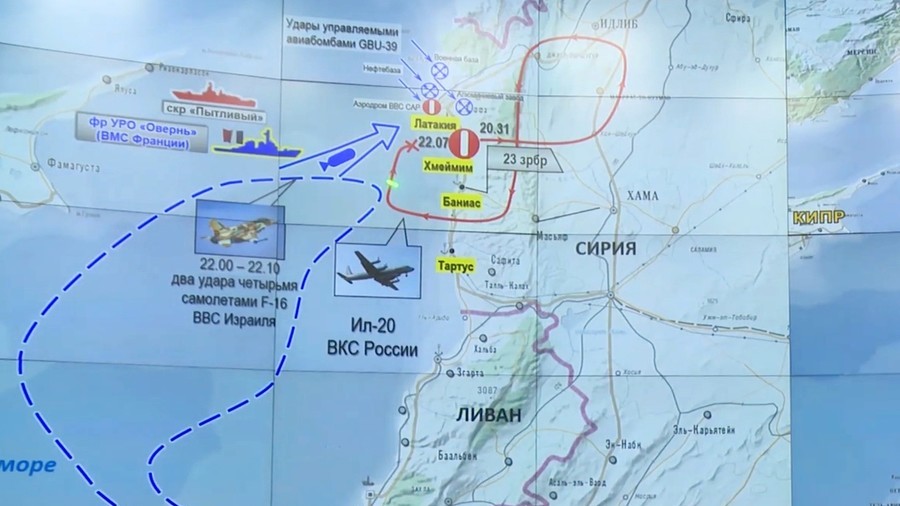
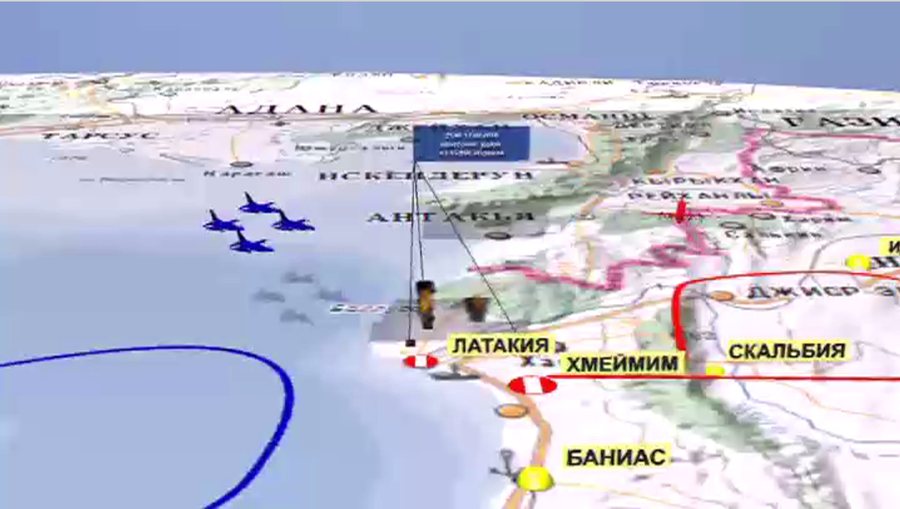
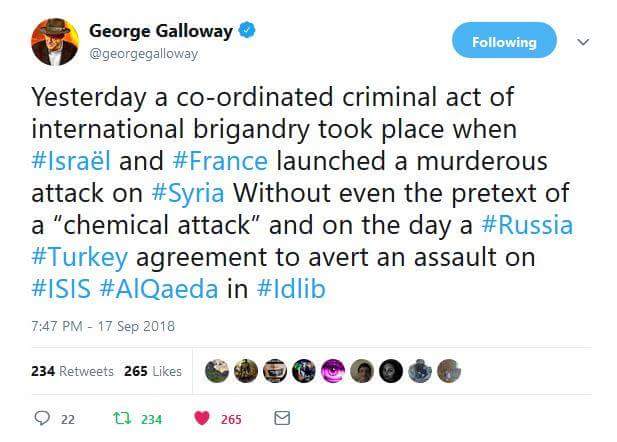

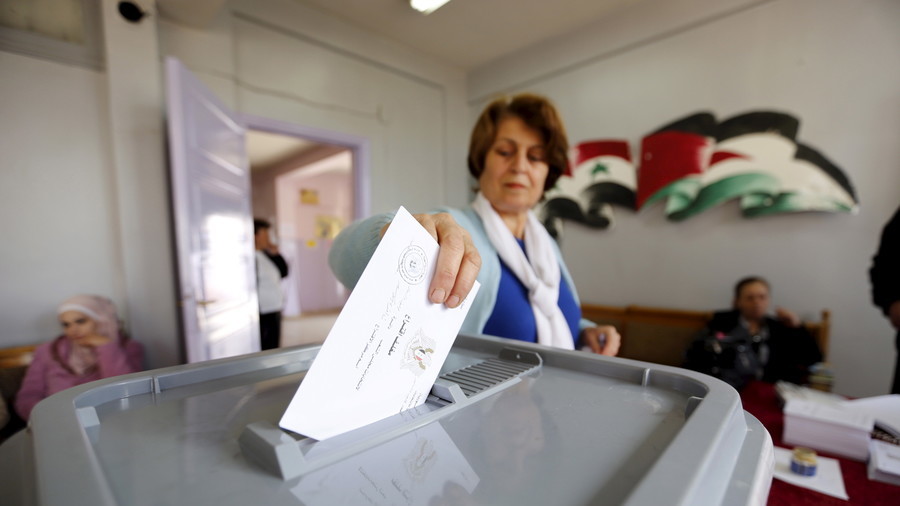
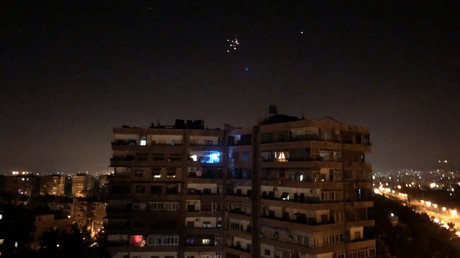


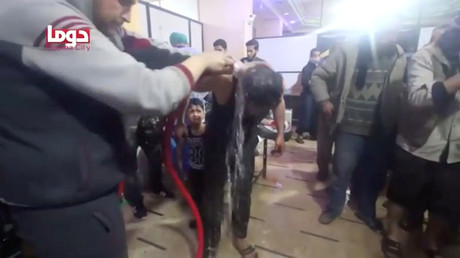
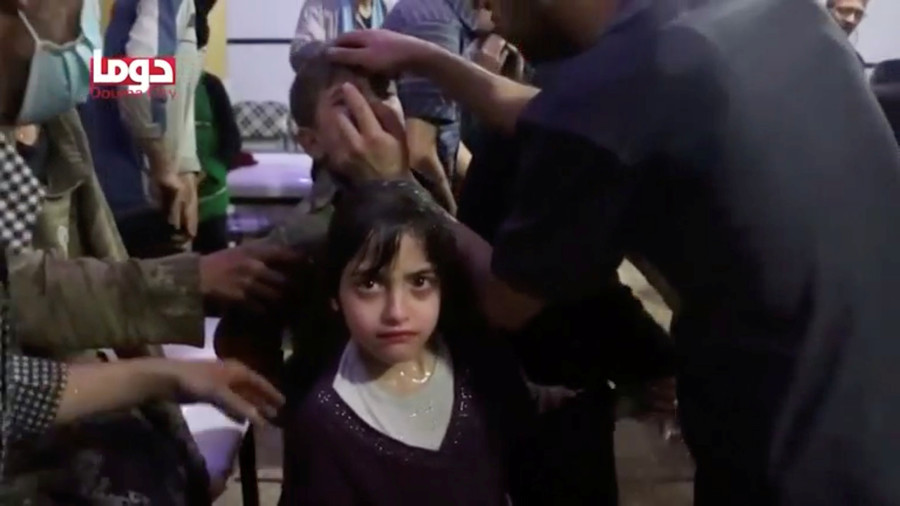
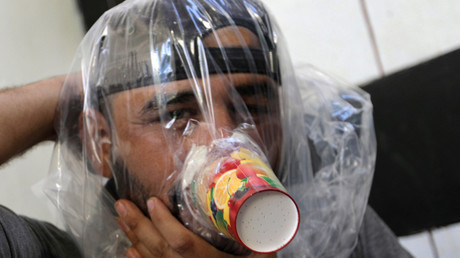

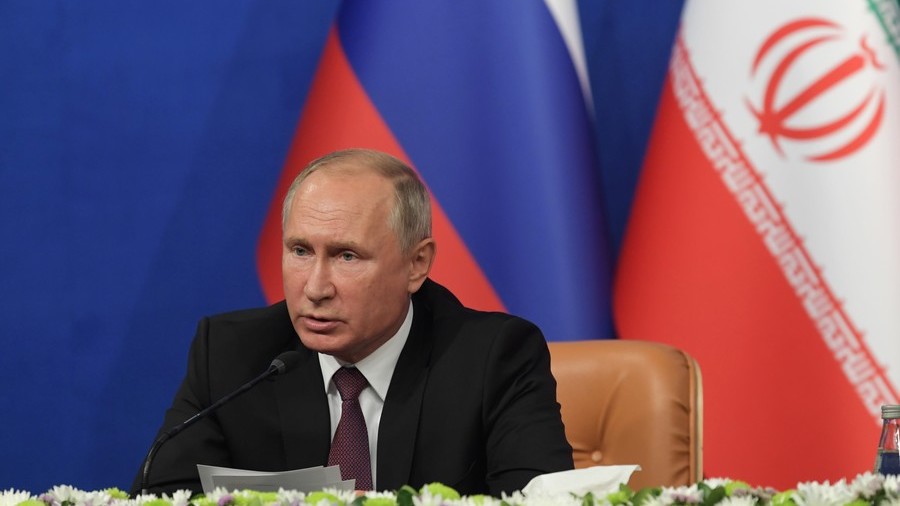
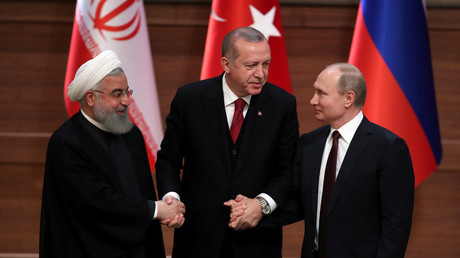
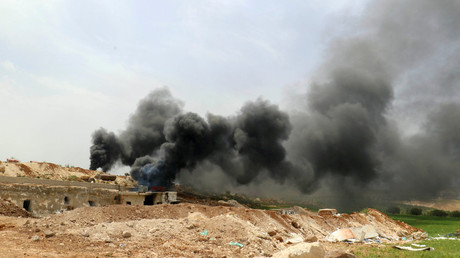







 Liberteon
Liberteon